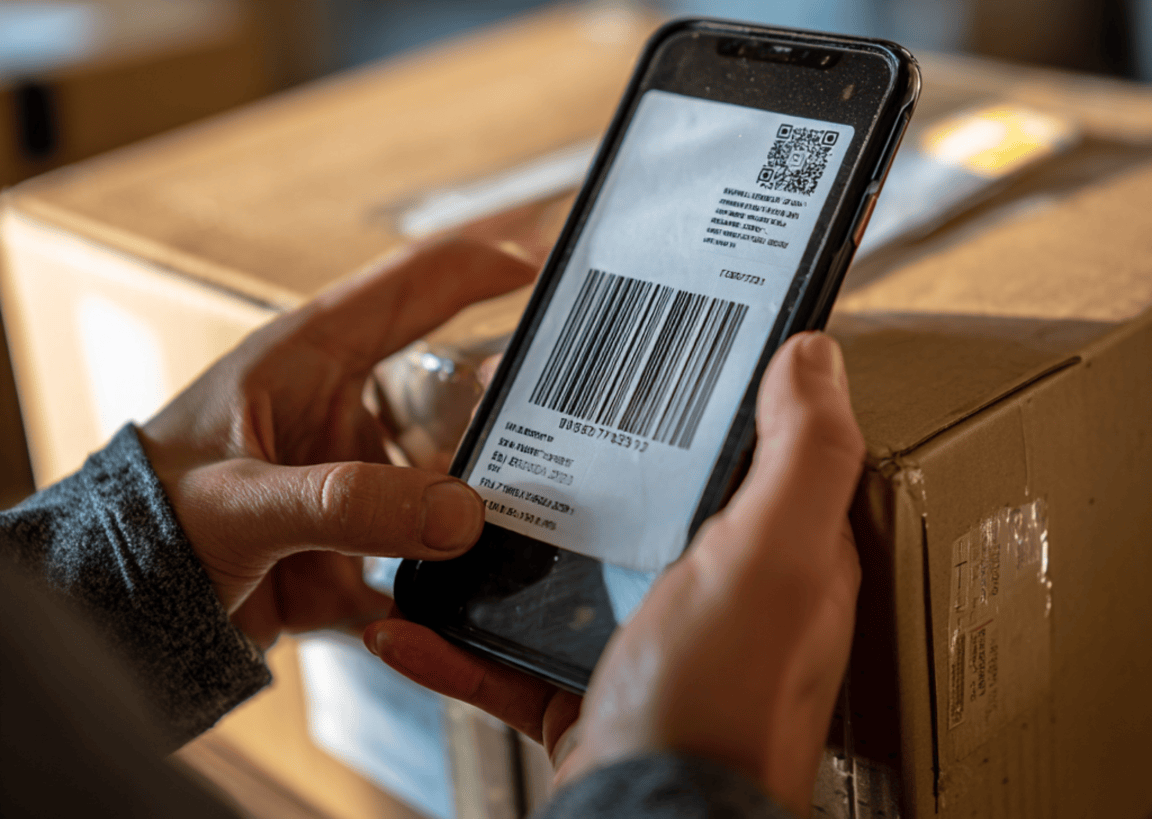How To Become A Mailroom Clerk: What It Is and Career Path

When you think of a business, what’s the first thing that comes to mind? The product? The brand? The office? Chances are, the mailroom is one of the last things you imagine.
The mailroom is seen as secondary to business operations, and that’s a shame. The reality is that it’s critical to make everything run smoothly. The mailroom clerk is responsible for that.
In this guide, we’ll explore the duties of a clerk, the skills required for success, and how mailroom management innovations are transforming the role.
The Role of the Mailroom Clerk
The mailroom clerk is in charge of the efficient and accurate flow of information and materials in the form of packages and vital documents. This description is pretty broad, so here is a breakdown of the key tasks:

- Processing incoming mail and parcels: Clerks keep order by categorizing incoming deliveries by recipient, department, size, type, and urgency. They’re also tasked with notifying and reminding recipients of item collection.
- Dispatching outgoing mail: Clerks prepare outgoing mail and packages for shipment. This includes calculating postage, applying labels, and arranging pick-up with couriers or postal services.
- Parcel tracking: Tracking systems to monitor the status of packages they’ve shipped out, so they can provide more accurate updates to senders and recipients.
- Managing inventory: Clerks have to maintain an adequate stock of essential supplies like envelopes, stamps, paper, and packing materials.
- Reporting: Some mailroom clerks create regular reports on key metrics like delivery volumes and peak periods of activity.
- Ensuring compliance: As a business component, mailrooms have to adhere to regulations. For mailrooms, we consider postal regulations and data privacy laws on top of internal company policies.
- Answering inquiries: Mailroom clerks are the main point of contact when people ask about mail delivery, package tracking, or internal mailroom procedures.
- Supporting reception and customer service: Clerks collaborate with the concierge and customer service teams to ensure a positive experience for inquiries and deliveries.
How the Mailroom Has Changed
With the rise of e-commerce, there are even more packages being sent than ever before. In 2023, the USPS alone had a total shipping and package volume of 7.1 billion.
This means that parcel rooms are becoming a common feature of mailrooms, especially for apartments and other residential properties. Parcel rooms are spaces designed to accommodate more packages more efficiently.
These kinds of changes mean that the mailroom clerk’s roles are shifting as well. Mailroom management is critical to any organization’s functions. It can’t be saddled onto just anybody, no.
To meet the challenge head-on, much of the clerk’s tasks have been streamlined with modern solutions.
Instead of manually writing down the information of dozens of parcels an hour, a mailroom clerk can use mailroom management software to scan all of these deliveries and notify their recipients in one go.
The staff then have more time to enhance their quality of work and service, elevating customer satisfaction along the way.
Mail Is Where the Titans Are Born
Mailroom clerks have a long history. Many of the most prominent business leaders today found their footing in the mailroom. Their journeys are a show of ambition and hard work—how dedication and an eye for opportunity can propel people to the sky.
And we can say for a fact that these people know the business from bottom to top.

David Geffen started his career in the mailroom at the William Morris Agency. He later co-founded DreamWorks SKG.
Michael Eisner started at ABC as a clerk and then as an assistant. He rose through the ranks and eventually became the CEO of Disney. (Disney acquired ABC in 1996.)
John Borghetti started at the Qantas Airlines mailroom. He was the Executive General Manager, then became the CEO of Virgin Blue (Virgin Australia).
How Can You Be a Mailroom Clerk?
Being a mailroom clerk relies on a mix of personal qualities and technical ability. Here are some key areas to focus on:

Organization
The mailroom clerk needs to be a master of order. They have to process and organize deliveries without any hiccups. They make the most out of the storage space, allowing packages to slot into a neat and accessible system.
Adaptiveness
They need to maintain the mailroom ecosystem while adapting to unexpected circumstances. In other words, they need problem-solving skills.
Someone ordered in furniture? We have storage for oversized packages. Lost a letter? We can find it in the database. Ordered too much during Black Friday? We can tell you what you’ve already collected and what’s incoming.
Attention to Detail
A keen eye is crucial. Incorrect postage or clerical errors can cause delays. Minute tears or leaks can be signs of breaking or spoilage. The mailroom clerk should be able to spot a problem before it needs a solution.
Technical Know-how
Today’s mailrooms are tech-driven. Basic computer skills are the bare minimum in navigating mailroom management software. Ideally, mailroom clerks know how to make the most of their tools, especially their digital ones.
Communication
Mailroom clerks are the main point of contact for customer support, courier and messenger reports, and management inquiries. They need to be able to disseminate information clearly while remaining professional. When dealing with delivery drivers or building staff, clerks can use Uniqode's business card to share their contact details without writing on paper scraps.
The Mailroom Clerk Journey
The road to the mailroom takes some preparation.

1. Get Mailroom Clerk Education
A high school diploma or an equivalent is usually enough in terms of formal education requirements. But, the modern demands of today’s mailrooms need a little extra. Additional skills and credentials can make you a standout candidate.
Supplement your education with relevant coursework online. Familiarize yourself with basic computer programs like word processing, creating spreadsheets, and writing emails. Hone your organization and time management skills.
You should also know how to utilize basic mailroom technology like postage meters and sorting machines. Mastering parcel management software will make your life much easier once you’re in the mailroom.
Consider this step training for hard skills.
2. Gain Practical Experience
Seek entry-level positions or internships in office administration, reception, or shipping. Take notes, especially during busy periods like sales or holidays.
All the while, you will be honing qualities related to interacting with others and thinking on your feet. (These are soft skills.)
- Active listening: Process information without interrupting yourself with biases or assumptions.
- Communication: Provide information without causing further confusion.
- Empathy: Understand where people’s extreme emotions may be coming from.
- Patience: Remain calm when facing tense situations.
- Conflict resolution: Address complaints and concerns in a satisfactory way.
3. Apply for Positions
There are many avenues for finding a job listing. Online boards like LinkedIn, Indeed, and Glassdoor are regularly updated. (They even feature company reviews!) You can also tap into your network or social circles.
Make sure to tailor your resume and cover letter to the company’s industry and your relevant skills.
Here are a few companies known for offering mailroom positions:
- Ricoh USA, Inc.: Managed print and mailroom services
- Canon Business Process Services: Document and mailroom management
- Xerox: Print and mailroom solutions
- Novitex: Document and mailroom management
- DTI: Legal outsourcing services
- Swiss Post Solutions: Mailroom and document management
- The Millennium Group: Office and mailroom services
- Exela Technologies: Mailroom automation
- CBRE: Facilities management, including mailrooms
4. Prepare for the Interviews
For these, just be your (professional) self. But a little practice can go a long way. Here are a few common interview questions:
- What mailroom technologies and software are you familiar with?
- How do you ensure accuracy and efficiency in your work?
- How do you deal with repetitive tasks?
- What do you do if you discover a package or letter has been misplaced or lost?
- How would you handle confidential or sensitive information?
- What strategies do you use to handle peak times, such as holidays or sales?
5. Continue Learning!
As with any industry, the mailroom game is always changing. Stay updated with emerging technologies and innovations. Embrace opportunities to familiarize and re-familiarize yourself with software and hardware, old and new.
The Mailroom Career Path
As we’ve discussed, the mailroom is a great foundation—for both businesses and careers. The skills and experiences of a mailroom clerk are incredible tools for positions in corporate logistics, facilities management, administrative services, and more.

- Supervisor: As a mailroom supervisor, you oversee mail distribution, ensure policy compliance, and resolve escalated issues like missing packages. This role requires leadership and strategic planning.
- Team leader: As an operations manager, you oversee budgets, optimize workflows, and integrate new technologies into the organization. Those with strong performance and proactive problem-solving can make it to this level.
- Consultant and specialist: As a consultant, you help many organizations optimize their mailroom operations, reducing costs and enhancing efficiency with tailored solutions. As a specialist, like an office operations manager, you oversee all administrative functions in the workplace (mailroom, IT, reception services, etc.). You ensure smooth daily operations and efficient resource allocation.
- Logistics coordinator and office manager: As a logistics coordinator, you manage mail service logistics and optimize mail handling processes. As an office manager, you oversee operations and handle administrative tasks like budgeting for supplies. At this level, you are working with multiple departments and other executives.
- Co-owner or founder: With ambition and operational knowledge, you can even start your own business. The mailroom industry is ripe for innovation. There are always opportunities to develop new management services or document security solutions.
Growth and entrepreneurship allow for the creative application of experience. In the right conditions, you can even transform traditional operations and build a successful business that makes an impact on the industry.
Empowering the Mailroom
Mailroom clerks play a critical role in any organization. With them, the flow of information and goods is ensured. As the digital landscape evolves and e-commerce trends grow, the responsibilities of mailroom clerks change, too.
The experience and knowledge gained as a clerk is valuable, no matter your career aspirations.
Take control of your journey and your mailroom today. See how powerful technology can streamline workflows, improve efficiency, and empower you to excel with Parcel Tracker.






